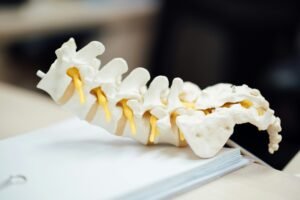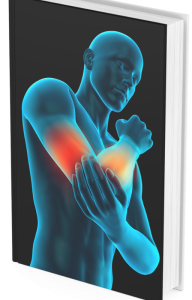Types of Headaches
Before exploring the potential benefits of osteopathy and acupuncture for headaches, it is crucial to first understand the different types of headaches and their causes. Headaches can be classified into several categories, including tension headaches, migraines, cluster headaches, and more. Each type presents with distinct symptoms and triggers, making it essential to identify the specific headache type to determine the most effective treatment approach.
Tension Headaches
Tension headaches are the most common type of headache and are typically characterized by a constant, dull pain that spreads across the forehead, temples, or back of the head. These headaches are often caused by muscle tension or stress and may be accompanied by a tight or squeezing sensation.
Migraines
Migraines are severe headaches that are often accompanied by other symptoms such as nausea, sensitivity to light and sound, and visual disturbances. They can last for several hours or even days and can be disabling for some individuals. Migraines are believed to be caused by a combination of genetic and environmental factors, including hormonal changes, certain foods, sensory stimuli, and emotional triggers.
Cluster Headaches
Cluster headaches are excruciatingly painful headaches that occur in cyclical patterns or clusters. They typically happen on one side of the head and are accompanied by symptoms such as nasal congestion, watery eyes, and restlessness. Cluster headaches are relatively rare but are considered one of the most painful types of headaches.
Other Types of Headaches
In addition to tension headaches, migraines, and cluster headaches, there are various other types of headaches that individuals may experience. These include sinus headaches, hormonal headaches, rebound headaches, and exertional headaches, among others. Each type may have different triggers and characteristics that require specific treatments.
Causes of Headaches
Headaches can be triggered by a myriad of factors, making it important to identify and address the underlying cause. The causes of headaches can vary depending on the type of headache, but some common triggers include:
- Stress: Emotional and physical stress can lead to muscle tension and contribute to the development of tension headaches or migraines.
- Muscle tension: Unresolved muscle tension in the neck, shoulders, and jaw can result in tension headaches.
- Hormonal changes: Fluctuations in hormone levels, such as those that occur during menstruation or menopause, may trigger migraines in some individuals.
- Environmental factors: Bright lights, loud noises, strong smells, or changes in weather conditions can trigger migraines in susceptible individuals.
- Dietary triggers: Certain foods and beverages, such as aged cheese, chocolate, caffeine, alcohol, and processed meats, may trigger migraines or cluster headaches in some people.
It is crucial to identify and mitigate these triggers to manage and prevent headaches effectively. By understanding the underlying causes, individuals can make lifestyle modifications and seek appropriate treatment options to alleviate their headache symptoms.
Osteopathy And Headaches
Osteopathy is a holistic approach that focuses on the musculoskeletal system and aims to restore balance within the body. Practitioners of osteopathy believe that headaches can be caused by misalignments or restrictions in the spine, neck, or other parts of the body.
When it comes to treating headaches, osteopaths use a variety of manual techniques to alleviate pain and discomfort. One of the main methods employed is manipulation, which involves applying pressure to specific points on the body to restore proper alignment and mobility. By manipulating the spine, neck, and other affected areas, osteopaths can help relieve tension and reduce headache frequency.
In addition to manipulation, osteopaths may also use stretching exercises to improve flexibility and increase range of motion. This can help reduce muscle tension and promote better blood flow, which can be beneficial in reducing headache intensity.
Another technique commonly used in osteopathy for headaches is massage. By applying targeted pressure to specific muscles and soft tissues, osteopaths can help relieve pain and tension in the head, neck, and shoulders. Massage can also improve blood circulation, which can help reduce inflammation and promote healing.
Overall, the aim of osteopathy for headaches is to restore balance within the body and alleviate any underlying causes of the headache. Osteopaths take a holistic approach to treatment, considering the whole body rather than just the symptoms. This can involve identifying and addressing any underlying musculoskeletal imbalances or restrictions that may be contributing to the headaches.
It’s important to note that osteopathy is not a one-size-fits-all solution for headaches. The treatment approach may vary depending on the individual and their specific needs. Osteopaths will take into account factors such as the type and frequency of headaches, as well as any other underlying health conditions, when developing a treatment plan.
In conclusion, osteopathy offers a holistic approach to treating headaches. By focusing on the musculoskeletal system and using manual techniques such as manipulation, stretching, and massage, osteopaths aim to relieve tension, improve blood flow, and reduce headache frequency and intensity. If you suffer from chronic headaches, it may be worth exploring osteopathy as a potential treatment option.
Acupuncture for Headaches
Acupuncture is an ancient Chinese practice that involves inserting thin needles into specific points on the body. According to traditional Chinese medicine, headaches are believed to be caused by imbalances in the flow of energy, or Qi, within the body. Acupuncture aims to restore this balance by stimulating specific points related to headache relief.
Today we know that Acupuncutre helps modulate the nervous system and this is its main action in helping to releive headaches.
Headaches are a common ailment that can be debilitating and greatly impact a person’s quality of life. They can range from mild discomfort to intense pain and can be accompanied by other symptoms such as sensitivity to light or sound, nausea, and dizziness. While over-the-counter medications are commonly used for headache relief, some individuals may seek alternative treatment options like acupuncture.
Research suggests that acupuncture may work for headaches by:
- Releasing endorphins: Acupuncture stimulates the release of endorphins, which are natural pain-relieving chemicals produced by the body. These endorphins can help reduce the perception of pain associated with headaches.
- Improving blood circulation: Acupuncture has been found to improve blood circulation, including blood flow to the brain. By enhancing blood flow, acupuncture may help reduce headache frequency and intensity.
- Regulating neurotransmitters: Acupuncture has been suggested to influence certain brain chemicals called neurotransmitters. Neurotransmitters play a role in transmitting signals between nerve cells, and imbalances in these chemicals may contribute to headaches. Acupuncture may help restore the balance of neurotransmitters, potentially reducing headache symptoms.
It is important to note that while some studies have found acupuncture to be effective in headache relief, more research is needed to fully understand its mechanisms and evaluate its long-term effectiveness.
During an acupuncture session for headaches, an acupuncturist will carefully assess the individual’s condition and identify specific acupuncture points that are believed to be effective for headache relief. The needles used for acupuncture are typically very thin and are inserted just beneath the skin at these selected points. The procedure is generally painless, although some individuals may experience a slight sensation or a feeling of heaviness.
Acupuncture is generally considered safe when performed by a trained and licensed acupuncturist. However, it is important to consult with a healthcare professional before starting any new treatment, especially if you have any underlying health conditions or are taking medications.
Potential Variations and Effectiveness
It is important to understand that osteopathy or acupuncture may not work for everyone, and individual results can vary. While these therapies have been found to be effective for some individuals in alleviating headaches, outcomes may differ depending on various factors.
Factors that can influence the effectiveness of osteopathy or acupuncture for headaches include:
- The underlying cause of the headaches
- The severity and duration of the headaches
- Your overall health and well-being
- Your individual response to the therapies
It may take multiple sessions or a combination of treatments to achieve the desired results. Patience and open communication with your practitioner are key to optimizing the effectiveness of these therapies.





